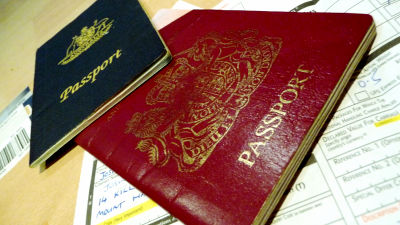Testimony of five young scientists who shattered the American dream with strict visa restrictions

U.S. President Donald Trump announced in 2017 that he
The visa woes that shattered scientists' American dreams
https://www.nature.com/articles/d41586-020-02746-y
◆ 1: Mr. Chenyang Li
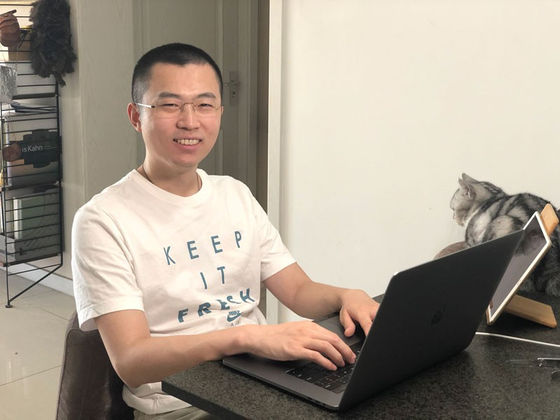
Li is a postdoctoral fellow studying theoretical chemistry at Emory University in Atlanta, Georgia. Li, who has been studying in the United States while renewing his Special Skills Visa (H-1B) since earning a PhD in theoretical chemistry from the University of Georgia in 2015, will be held in Beijing in December 2019. I returned to China temporarily to attend a symposium for young scientists.
After that, Mr. Li, who was interviewed for a visa to return to the United States on December 31, experienced there when he made many round trips between the United States and China, such as 'Is the computer code under study useful?' He said he was asked a question he had never had. Furthermore, when the epidemic of the new coronavirus infection (COVID-19) began in earnest in 2020, the visa issuance process was completely stopped. Since then, Mr. Li has not been able to re-enter the United States.
Li, who is aiming for a job teaching academics, is currently living in China and working on writing dissertations in contact with researchers at Emory University. However, due to the influence of COVID-19, many universities are not hiring, and with Mr. Li's research field being a little niche, it is difficult to find a job in the United States that can utilize his expertise. ..
Li advised non-American scientists in the United States, 'Before returning to your home country during periods of instability, you should think twice about what will happen.'
◆ 2: Mr. Umair Ahsan
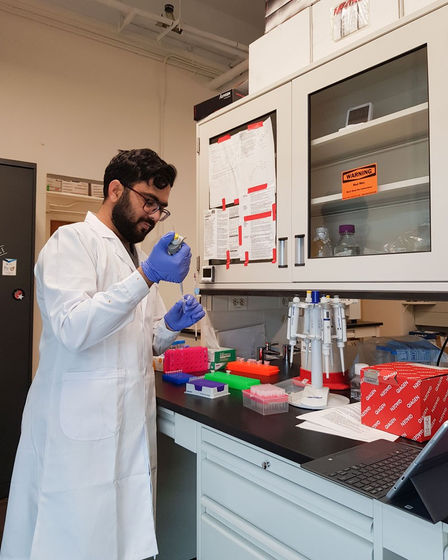
Ahsan launched a postdoctoral program in plant molecular biology at Cornell University in New York in May 2019, a month after his wedding in his hometown of Pakistan. While working on a project to increase tomato yields at Cornell University, Ahsan lived on a postdoctoral fellow's common visitor visa (J-1), while Ahsan's wife had a family visa (J). -2) could not be obtained.
So Ahsan tried to return to Pakistan to reapply for his wife's J-2 visa in line with his visa renewal, which expires in April 2020, but COVID-19 is once in a rage. I was forced to cancel my trip because I was shaking. Ahsan decided to leave the United States and return to Pakistan after the Trump administration announced the suspension of the issuance of H-1B visas and J-1 visas to catch up with Mr. Ahsan.
It was a regret for Ahsan to have to throw out a project at Cornell University, but Ahsan made a tough decision as he didn't know when new visa restrictions would come in the turmoil of COVID-19. It seems that he had no choice but to do.
Mr. Ahsan, who returned to Pakistan in this way, said that he plans to do postdoctoral research in Australia instead of continuing research in the United States even if the turmoil subsides. To scientists heading to the United States, Ahsan said, 'The visa situation in the United States is very fluid. For international researchers who are thinking of going to the United States, make a preliminary plan in another country. It's a good idea to keep it, and if you're going to the United States with your spouse or partner, apply together at the same embassy. '
◆ 3: Mr. Gloriia Novikova
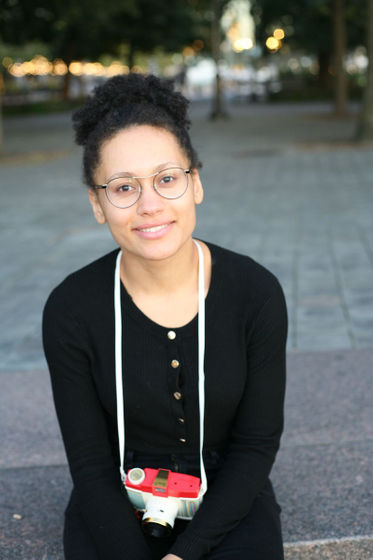
Novikova is a PhD student studying Alzheimer's disease at Mount Sinai School of Medicine in New York. Novikova, who moved to Russia from the Republic of Moldova as a child and attended a Russian university for a year, moved to the United States in 2013 to enroll at Purdue University in Indiana, where he studied chemical engineering. And from 2017, he has started research on Alzheimer's disease at Mount Sinai School of Medicine.
Novikova, who has lived in the United States for eight years on a student visa (F-1), said, 'At the research institute I belong to, many people come to the United States on a visa, whether they are students or not. We share anxiety because we are and immigrants. Fortunately, the International Student Office answers our questions well and is fighting for us. It makes me feel. '
Still, as news about visa restrictions and deportation of international students comes out on a daily basis, Novikova feels anxiety that 'the problem may be too complicated for the international student office'. It seems that it is. As a result, Novikova began discussing immigration to another country with her husband, who works for an American tech company on an H-1B visa.
From this experience, Novikova said, 'Many people do not understand how hard, devoted, and sacrificed it takes to succeed in the United States as an immigrant. They live in a foreign country and live in different cultures. Sometimes it's very difficult to succeed with a language barrier. It's a weird way of life that's nerve-wracking. '
Regarding future life in the United States, 'I really love this country, so it has been a scary and painful time in recent years. I feel free, but I feel welcomed anymore. No. Now we are asking ourselves, 'Is America the best option?' I don't know the answer to that question. '
◆ 4: Mr. Azan Virji
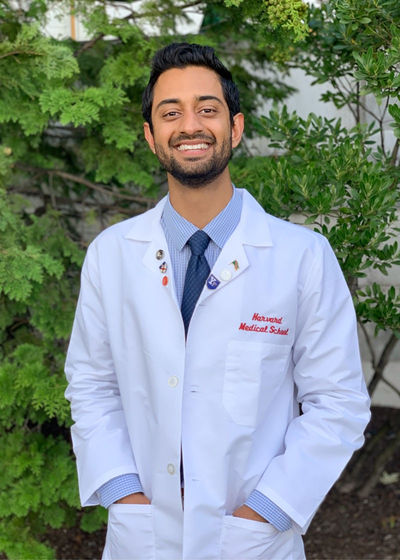
Originally from Tanzania, Virji is studying medicine in the United States as a sophomore at Harvard Medical School. Tanzania is also one of the countries with strict visa restrictions in recent years, but it is worth noting that Tanzanias are no longer able to apply for the Diversity Immigrant Visa Program (Green Card Lottery) .
Also, Mr. Virji himself is sick of not being able to become a trainee and helping people suffering from COVID-19 because his H-1B visa has been suspended and he cannot apply for a green card. He said he was thinking. Regarding this situation, Mr. Virji said, 'I have witnessed that the pandemic of having to cross borders and fight as one country has further divided the world and each country has come to think only about themselves. I did . '
In March 2020, Virji founded F-1 DOCTORS , an organization that supports immigrant medical students, to address the challenges faced by foreigners seeking to become doctors in the United States. Benjamin Andres Gallo Marin and Ghazal Aghagoli, who co-founded F-1 DOCTORS with Virji, are also medical students with roots in Nicaragua and Iran, respectively.
'It's not that you can't apply to the medical school of an American university unless you're an international student who's significantly better than an American,' Virji told anyone looking to study medicine in the United States. Of the 141 American universities that have medical schools, 49 accept applications for international students, most of whom only accept Canadians, so we accept 31 international students widely. We have prepared a document that summarizes information about the university and financial support of the university. '
◆ 5: Mr. Yixin Chen
Chinese Chen is a PhD student studying cognition and decision making at Boston University. Chen says he has an F-1 visa that is valid for five years, but he was shocked by the US government 's policy of not issuing visas to international students who only take online classes for several days. He said he couldn't move. Eventually, the above decision was withdrawn, but Chen said, 'Although the visa policy was withdrawn, I feel the damage was significant.'
'The friction that has occurred between the United States and China in recent years will continue even after the Trump administration ends, and the United States' response to the COVID-19 pandemic is also being addressed by international students, Chen said. It has led to the idea of trust in the United States. For some time, it has become less hopeful to secure a seat for a lifelong teacher , but there seems to be a lot of uncertainty in US immigration policy. It has become more difficult since then, 'he said, pointing out that the United States is becoming less attractive to young, highly educated students from around the world.
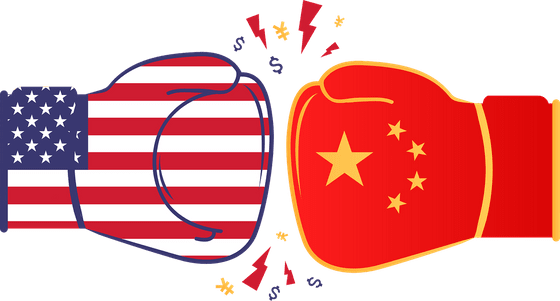
Regarding his future in the United States, Chen said, 'When I first arrived in the United States in 2018, I thought I would stay in the academic world and go on to the postdoctoral program, but now I know. International students are rethinking their future career plans. I myself have become more motivated to pursue industry or even get a job in China, rather than aiming for a postdoc in the United States. ' ..
Related Posts:
in Science, Posted by log1l_ks




